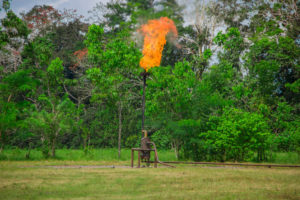This Week in Bribes — Guilty Pleas in Two Major FCPA Cases

Major developments occurred last week in two different FCPA cases related to two separate state energy companies. PetroEcuador and PDVSA have both been the subjects of long-running FCPA and money-laundering investigations. In Ecuador, over a dozen PetroEcuador officials have already been charged with accepting bribes in exchange for business with the state oil company. And in Venezuela, the PDVSA scandal has spawned multiple prosecutions against Venezuelan officials and individuals around the globe for accepting and facilitating bribes to obtain business with Venezuela’s national electric company.
Two new pleas have now been added to the mix. Last week, prosecutors in Miami obtained a guilty plea by Jose Larrea, a US-based financial advisor, who admitted to facilitating the international transfer of money used to hide illegal payments by oil-services contractor GalileoEnergy SA to PetroEcuador. Days later, Houston prosecutors accepted a guilty plea from Juan Carlos Castillo Rincon, a former manager of a logistics company, who admitted to bribing PDVSA officials for business.
Both cases show some common themes in FCPA prosecutions of this type. Both guilty pleas relate to the big business of subcontracted services in the oil industry. Logistics and transportation companies have a lot to gain from the large and lucrative energy contracts controlled by state-run companies. Those types of companies may be willing to take big risks to obtain the contracts, even breaking the law.
A second important point is that bribes don’t happen in a vacuum. Fraudsters are reliant on complex money-laundering operations to facilitate them. To hide illegal payments from tax officials and other government enforcement agencies, companies usually move money between numerous shell companies around the world. This complex shell game requires multiple enablers, such as financial advisor Mr. Larrea. This increases the breadth of people who could potentially be liable for FCPA violations stemming from a single bribe, while broadening the scope of individuals who have sufficient exposure to the fraud to be able to alert the government to the fraud as a potential whistleblower.
Finally, these cases show how large financial and corporate scandals these days are not geographically limited. Although the actions in question in both cases occurred in South America, the damages from each scandal were not limited to the country of origin and neither were the sophisticated mechanisms used to issue and then hide the bribes. Thus it is unsurprising that enforcement agencies from multiple countries have been involved in bringing fraudsters to justice.
If you have any information about bribes being paid to facilitate business deals around the globe, please contact us.
Read More:
- Foreign Corrupt Practices Act
- International Whistleblowers
- The SEC Whistleblower Program
- I Think I Have a Whistleblower Case
Tagged in: FCPA, International Whistleblowers, Money Laundering,